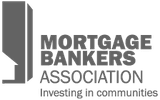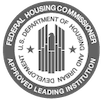
Mastering mortgage lead generation is critical for loan officers looking to thrive in today’s competitive housing market. In a recent panel discussion, three industry experts shared their best strategies for mortgage lead generation, focusing on building relationships, leveraging technology, and adapting to consumer needs. These insights from Tim Davis, Ryan Grant, and Kayla Kallander provide actionable advice for professionals aiming to strengthen their pipelines in 2025.
Building Relationships Through Personal Connection
Tim Davis, co-founder of The Originator’s Guide and Chief Growth Officer at Canopy Mortgage, highlighted the power of in-person engagements with real estate agents for mortgage lead generation. A veteran of 27 years, Tim has perfected hosting educational and entertaining classes that attract agents and generate referrals.
“People would rather be entertained than educated,” he explained. By creating engaging events, Tim ensures agents not only attend but also refer potential clients. His secret weapon? A follow-up survey at the end of each class to collect actionable leads.
Actionable Tip: Start with small, high-quality classes and always include a call to action, such as asking attendees for referrals.
Leveraging Social Media to Foster Trust
Kayla Kallander, a mortgage lender in Fargo, North Dakota, shared her success in using social media platforms like LinkedIn, Instagram, and Facebook to create authentic connections.
“When I pick up the phone, people already know who I am because they’ve seen me on social media,” she said. By posting a mix of personal and professional content, such as updates on her dogs or client success stories, Kayla builds trust and familiarity. That trust and familiarity can often times flow over into mortgage lead generation for her business.
Actionable Tip: Diversify your social media content with personal stories, professional achievements, and educational posts. Monitor engagement metrics to refine your strategy.
The Power of Direct-to-Consumer Strategies
Ryan Grant, President of NEO Home Loans, emphasized the growing importance of direct-to-consumer strategies in mortgage lead generation. With a system generating 30,000 buyer leads monthly, Ryan focuses on meeting clients during their fact-finding phase, before they are ready to engage with a lender.
“Most people don’t want to talk to a salesperson right away,” he explained. Ryan’s approach combines technology with personalized advice to build trust early in the process.
Actionable Tip: Create a digital strategy that allows consumers to explore pre-approvals and financial options independently. Supplement this with personalized, advisory interactions.
Using Technology to Scale and Personalize
The panelists unanimously agreed on the importance of technology in optimizing mortgage lead generation. From AI tools like ChatGPT to platforms like Betsy for immediate client engagement, technology enhances efficiency and scalability.
Kayla uses tools like Plod to record and summarize client conversations, while Tim utilizes QR codes and digital registration tools to streamline event management. Ryan’s innovative use of AI enables instant engagement with potential clients, ensuring no lead goes unanswered.
Actionable Tip: Leverage tools such as ChatGPT for content creation, Plod for client follow-ups, and AI platforms like Betsy for lead engagement. These technologies free up time for more meaningful client interactions.
The Importance of Targeted Engagement
Each expert emphasized targeted engagement as a cornerstone of effective mortgage lead generation. “Conversations equal contracts,” Ryan noted. Whether through in-person events, social media, or direct-to-consumer strategies, meaningful interactions drive long-term success.
Actionable Tip: Customize your outreach based on your audience. Offer educational resources to first-time homebuyers or host targeted classes for real estate agents to create value and generate leads.
Final Thoughts
The landscape of mortgage lead generation is rapidly evolving, and loan officers must embrace both traditional and modern strategies to succeed. Whether through personal connections, social media, or advanced technology, the key is staying client-focused and adaptable.










